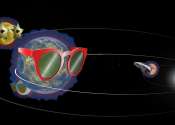New Drake equation to quantify habitability?
Researchers from the Open University are laying the groundwork for a new equation that could mathematically quantify a habitat's potential for hosting life, in a similar way to how the Drake equation estimates the number ...









